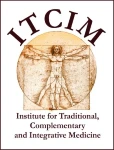
Prof. Faadiel Essop, FAPS, FRASSAf - South Africa
Abstract of the presentation
The Decolonization of Medical Practice and Education With Consideration to Indigenous Knowledge Systems
Branch: Other (Decolonization of medicine)
There is an increased impetus to decolonize medical teaching, research, global healthcare systems, and practice. The process of decolonization is complex and multifaceted. For example, colonialism contributed to and perpetuated false beliefs about racial hierarchies and differences in physiology based on race. Such ideas historically influenced medical research efforts, education, and practice, resulting in discriminatory treatment of some research subjects and patients. Moreover, attempts to address such issues can be challenging, as existing medical and biomedical sciences curricula are rooted in Eurocentric perspectives and historical traditions. The harms of colonialism and systemic racism remain, as they are often structurally embedded in populations, thereby perpetuating inequity in access to healthcare.
This talk will provide insights into the decolonization of medicine by focusing on three key aspects: curricula, research, and medical practices. It will highlight the importance of addressing historical legacies when training medical, allied health sciences, and biomedical students. Medical and allied health sciences curricula should therefore be reconsidered and remodeled to include reference to the role of medicine and science as part of the colonial project, as well as the impact of scientific racism and linked medical practices on Indigenous peoples and contemporary marginalized communities.
Curriculum vitae
Prof. Faadiel Essop is a professor and director of the Centre for Cardio-metabolic Research in Africa at Stellenbosch University’s medical school. He completed his undergraduate and doctoral studies at the University of Cape Town, and thereafter a BA (Hons) degree (Arabic Studies) at the University of the Western Cape. He was awarded the Chevening Fellowship (Leeds, UK) and was a Fulbright Fellow at the University of Texas-Houston Medical School. Prof. Essop is currently investigating the effects of chronic stress on human health. He was a recipient of the university’s teaching excellence award (twice) and is a Teaching Advancement at University (TAU) fellow. Prof. Essop was former Presidents of the Physiology Society of Southern Africa (PSSA) and the African Association of Physiological Sciences, and previous chairperson of the Research Advisory Committee of the SA Heart and Stroke Foundation. He is currently an elected council member of the International Union of Physiological Sciences. He is also a Fellow of the American Physiological Society and was awarded the PSSA’s prestigious Lifetime Career Achievement Award for research excellence. Prof. Essop was elected as a Fellow of the Royal Society of South Africa in 2023 and was recently awarded the prestigious TAU Fellow award for his innovation in curriculum development, inter-disciplinary work, and holistic student training in the medical field.
Please note that some of the texts also include machine-generated translations.





